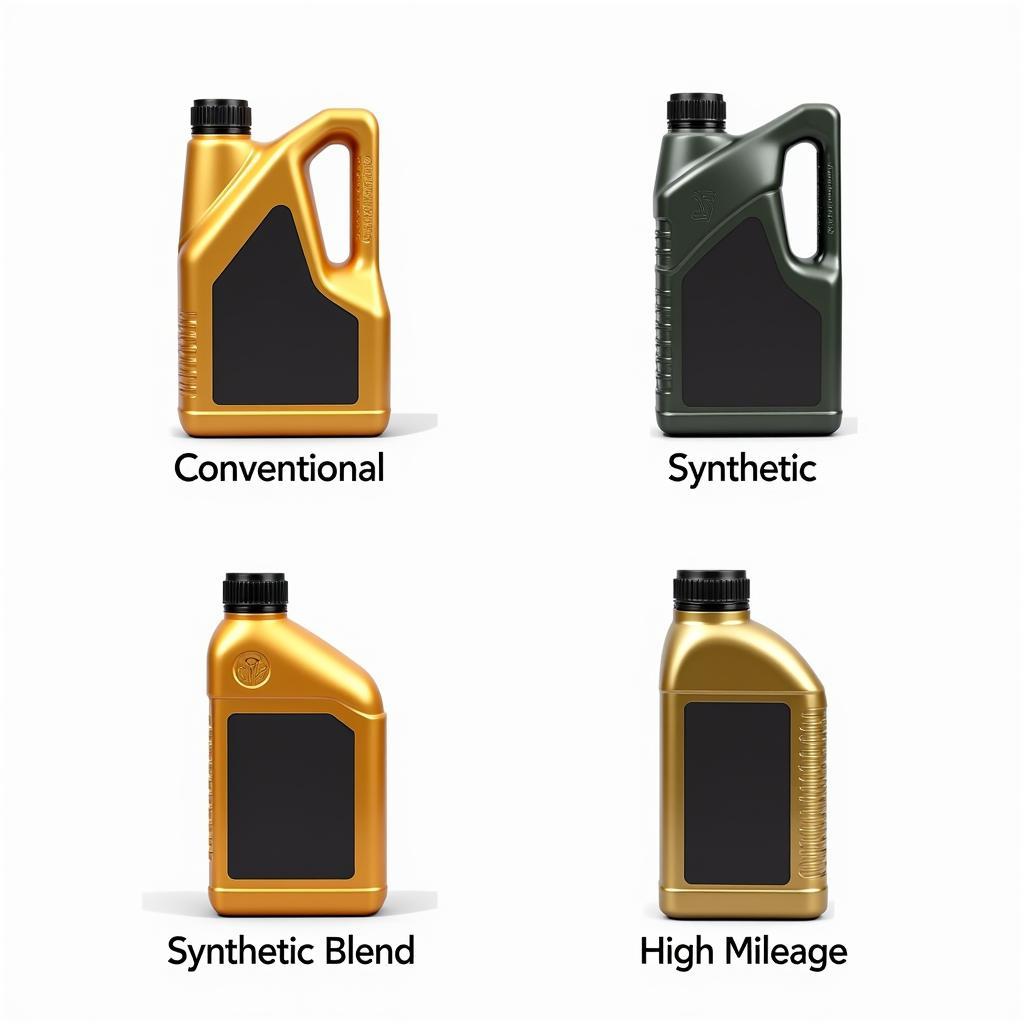Which Oil is Best for Car Service?
Choosing the right oil for your car service is crucial for maintaining engine performance and longevity. Using the wrong oil can lead to decreased fuel efficiency, increased engine wear, and even catastrophic engine failure. This comprehensive guide will help you navigate the often-confusing world of motor oil and determine which oil is best for your specific vehicle. Let’s dive in! You might also be interested in how much is a general car service.
Understanding Motor Oil Grades
Motor oil viscosity, represented by a two-number grade (e.g., 5W-30, 10W-40), indicates its thickness and how it flows at different temperatures. The “W” stands for winter, and the lower the number before the “W,” the better the oil flows in cold temperatures. The second number indicates the oil’s viscosity at higher temperatures. Understanding this grading system is essential when choosing Which Oil Is Best For Car Service. A higher second number signifies a thicker oil at operating temperature.
For instance, a 5W-30 oil is thinner at lower temperatures than a 10W-30 oil, making it easier to start your engine in cold weather. However, both oils have the same viscosity at higher temperatures. Choosing the right viscosity depends on your climate and your vehicle manufacturer’s recommendations. Check your owner’s manual for the specific oil viscosity recommended for your car.
Types of Motor Oil
There are several types of motor oil available, each with its own set of characteristics and benefits. Understanding these differences is crucial when considering which oil is best for car service. The most common types include:
- Conventional Oil: This is the most basic type of motor oil and is suitable for vehicles with simple engine designs and standard driving conditions.
- Synthetic Oil: Engineered for superior performance, synthetic oil offers better protection against wear, improved fuel economy, and extended drain intervals. It’s ideal for high-performance engines and extreme driving conditions. If you’re curious about leasing and its coverage, you can read more about does car leasing include servicing.
- Synthetic Blend Oil: This combines the benefits of both conventional and synthetic oils, offering enhanced performance at a more affordable price. It’s a good option for vehicles with moderate performance demands and drivers seeking improved protection.
- High-Mileage Oil: Formulated for older engines with higher mileage, this oil type contains additives that help reduce leaks, minimize oil consumption, and provide enhanced protection against wear.
 Different Types of Motor Oil – Conventional, Synthetic, Synthetic Blend, and High-Mileage
Different Types of Motor Oil – Conventional, Synthetic, Synthetic Blend, and High-Mileage
Why Choosing the Right Oil Matters
Using the correct oil is vital for several reasons:
- Engine Protection: Proper lubrication reduces friction between engine components, minimizing wear and tear.
- Fuel Efficiency: The right viscosity oil can help improve fuel economy by reducing engine drag.
- Engine Longevity: Using the specified oil helps prevent sludge buildup and keeps your engine running smoothly for longer.
- Optimal Performance: The right oil ensures your engine operates at its peak performance level. For those who own a Toyota, it’s worth checking if toyota service includes car wash as part of their maintenance package.
Consulting Your Owner’s Manual
The best source of information regarding which oil is best for your car service is your owner’s manual. It provides the manufacturer’s specific recommendations for oil viscosity and type, ensuring optimal engine performance and longevity. Don’t guess – consult your manual!
What if I can’t find my owner’s manual?
If you’re unsure which oil to use, you can often find this information online on the manufacturer’s website or by contacting a dealership. It’s important to use the correct oil, especially for specific car models, like a Corsa. You might want to know how often should i service my car corsa for optimal maintenance.
Conclusion
Choosing the right oil for your car service is a critical decision that directly impacts your vehicle’s performance, longevity, and overall health. By understanding the different oil grades and types, and by consulting your owner’s manual, you can ensure you’re making the best choice for your car. Which oil is best for car service ultimately depends on your car’s specific needs, so take the time to make an informed decision. Are you wondering if the car dealership is the best place for car service? Check out our article for more insights.
FAQ
- What happens if I use the wrong oil viscosity?
- Can I switch between conventional and synthetic oil?
- How often should I change my oil?
- What does the “W” in oil viscosity stand for?
- What are the signs of low oil pressure?
- How can I check my oil level?
- What are the benefits of using high-mileage oil?
For support contact us on WhatsApp: +1(641)206-8880, Email: [email protected] or visit us at 456 Oak Avenue, Miami, FL 33101, USA. We have a 24/7 customer service team.

